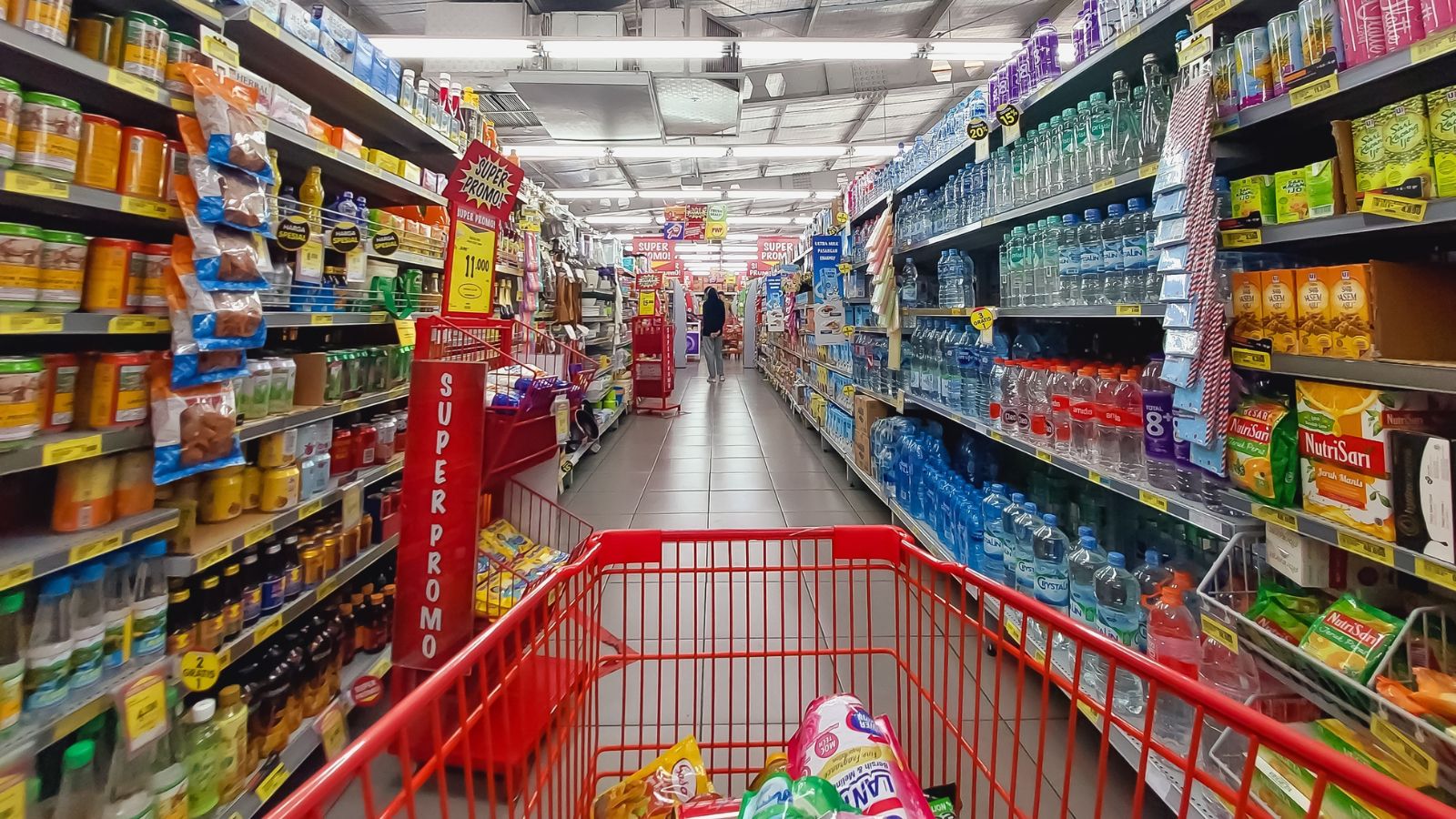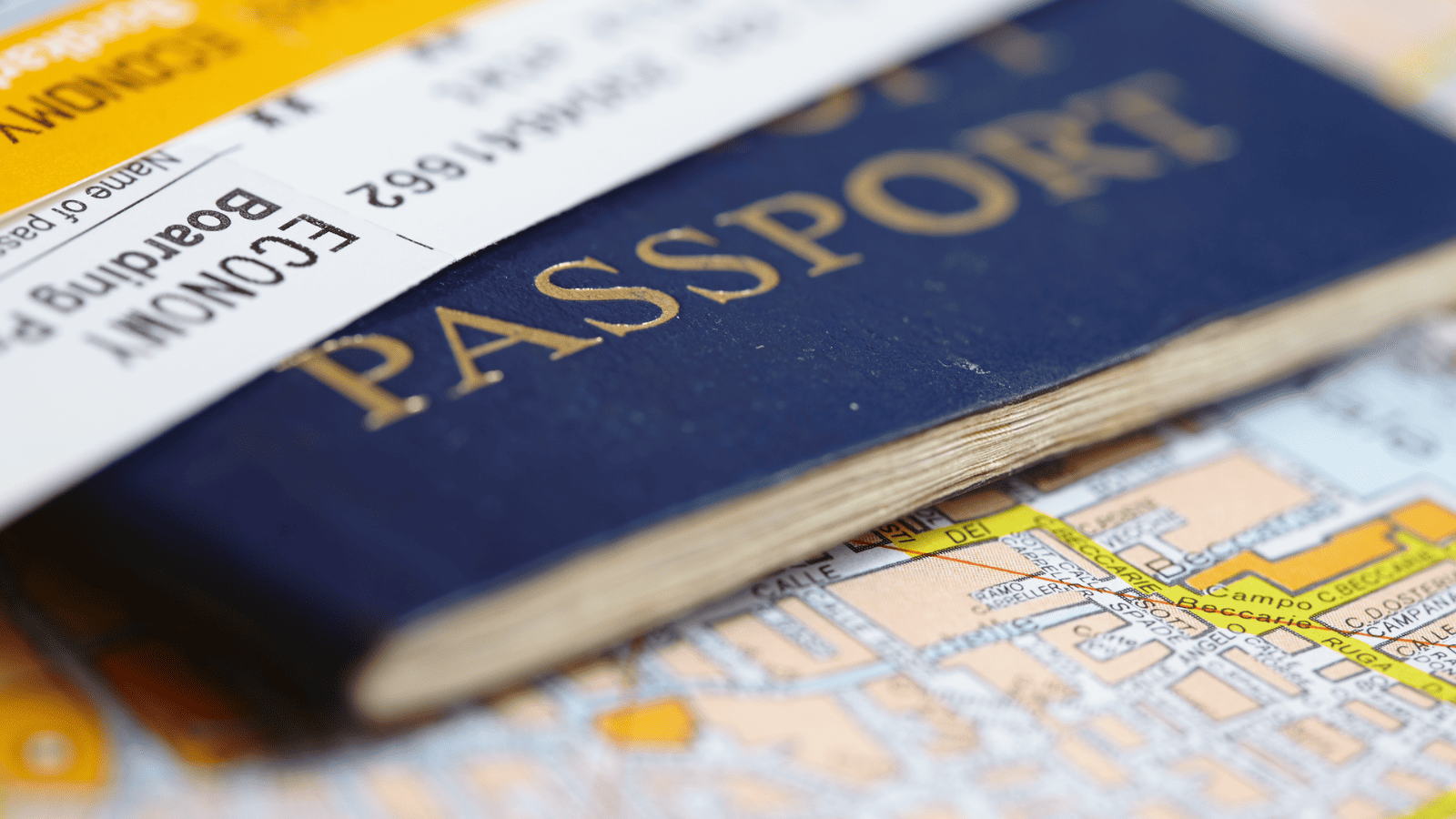Regardless of whether you voted for Brexit or Remain, there’s no denying that leaving the EU has changed life in the UK. Unfortunately, most of these changes have been negative. To show you what we mean, here are 17 ways Brexit has changed everyday life for Brits.
Supermarket Shelves Look Different

You’ve probably noticed that post-Brexit changes in trade agreements have led to noticeable shifts in supermarket offerings. Familiar European brands may be less common, and as The Grocer points out, even some British products have become harder to find. This has encouraged a rise in British alternatives and new products from non-EU countries, although let’s be real–they’re just not the same.
Traveling to Europe Requires More Planning

One of the most frustrating side effects of Brexit has been that travel to EU countries has become more complicated since Brexit. UK citizens now need to ensure their passports meet stricter criteria, and travel insurance has become more crucial. Mobile roaming charges, which were once eliminated under EU regulations, are making a return, and visas are necessary for longer trips.
Price Increases on Imported Goods

If you do manage to find imported goods on supermarket shelves, you’ll notice their prices have risen due to new tariffs and customs checks. Shoppers have noticed price hikes on just about everything, including grocery basics, electronics, and clothing. These added costs are often passed on to consumers, making everyday purchases more expensive and influencing buying decisions.
Changes in the Workforce

Brexit has had a significant impact on the UK’s workforce, particularly in industries that relied heavily on EU workers. Sectors like hospitality, agriculture, and healthcare have faced staffing shortages, leading to increased wages and changes in service delivery. Unfortunately, this has meant that the availability of skilled labor has become a key concern for many businesses.
Healthcare Access in the EU Is No Longer Guaranteed

Perhaps the most concerning post-Brexit change for UK holidaymakers is how citizens traveling or retiring in the EU now face uncertainty regarding healthcare access. The European Health Insurance Card (EHIC) was replaced by the Global Health Insurance Card (GHIC), but it doesn’t cover all the same benefits. This has led to a greater reliance on private insurance for health coverage while abroad.
Rise in Customs Paperwork

If you’ve had to cross borders with goods, you’ll know that customs paperwork has become a nightmare for British businesses and individuals alike. Importing or exporting goods between the UK and EU now requires extensive documentation, leading to huge delays and increased costs. This has particularly affected small businesses, which often lack the resources to manage the added bureaucracy efficiently.
Education Opportunities Have Shifted

Talk to any young British person, and they’ll vent their frustrations on how Brexit has influenced the education landscape, especially for students considering studying abroad. UK students no longer have access to the Erasmus+ program, which facilitated exchanges within the EU. As a result, fewer students are studying in Europe, and UK universities have seen a decline in EU student enrollment.
Pet Travel Has Become More Complicated

Nowadays, British pet owners face additional hurdles when traveling to the EU. The previous pet passport scheme has been replaced with a more complex process, requiring extra documentation and health checks. These changes have made spontaneous travel with pets more challenging, adding stress and cost for animal lovers.
Reduced Freedom of Movement

Brexit’s end of freedom of movement has affected many aspects of life, including work, retirement, and even recreational plans. UK citizens no longer have the automatic right to live and work in the EU, leading to significant lifestyle changes for those who once took this freedom for granted.
Impact on Online Shopping

Online shopping from EU countries has become more expensive and complicated due to the additional customs fees and taxes that have come from Brexit. Shoppers now have to factor in these extra costs when purchasing from European retailers, and delivery times have also increased, leading to frustration for those accustomed to quick and easy transactions.
Fishing Industry Faces New Challenges

The fishing industry, a central issue in Brexit negotiations, has encountered significant post-Brexit challenges despite promises of regained sovereignty. UK fishermen now face restrictions in EU waters, and the industry has been burdened with extra red tape and export delays. These changes have impacted livelihoods and the availability of certain seafood in UK markets, which we’re not too pleased about.
Currency Fluctuations Affect Holiday Budgets

British Sterling has never been quite the same since Brexit, and this has affected the cost of holidays abroad. Travelers must now be more strategic about when to exchange money to get the best rates. This financial uncertainty has influenced how and when people book their trips, as well as their spending power while traveling.
Rise in Nationalism and Identity Politics

Due to the nature of its manifesto, Brexit has intensified discussions around national identity and sovereignty. This shift has influenced political debates and social interactions greatly, with an increase in visible displays of patriotism. Some might see this as positive, but for the vast majority of Brits, it’s a step backward.
Changes in Property Markets

Any homeowners will know how the property market has been affected enormously by Brexit in various ways. Foreign investment is down, and we’re seeing immense fluctuations in housing demand. Some regions have seen a slowdown in property sales, particularly in areas popular with EU nationals. Uncertainty around future economic conditions has also made prospective buyers and sellers a lot more cautious.
Altered Relationships with Neighbors

Sadly, Brexit has had a noticeable effect on neighborly relationships, particularly in communities with a mix of UK and EU nationals. Feelings of uncertainty and differing opinions about Brexit have sometimes led to tensions, which has altered community dynamics completely.
General Division

Can anyone really say that Brexit brought Brits together? It seems that ever since the referendum, the country has never been more divided. Originally, the left-leaning voted to remain while the right-leaning voted for Brexit. However, these days, it feels like both sides have become extreme in their views, which has damaged the country’s internal relations significantly.
Cultural Exchange Has Diminished

The saddest side effect on this list from Brexit has been the reduction in cultural exchange between the UK and EU countries. This has affected joint artistic projects, funding opportunities, and, worst of all, the ease with which artists can tour between countries. The increased paperwork and costs associated with cross-border cultural activities have made these exchanges more challenging to maintain, leading to countless cancellations.

